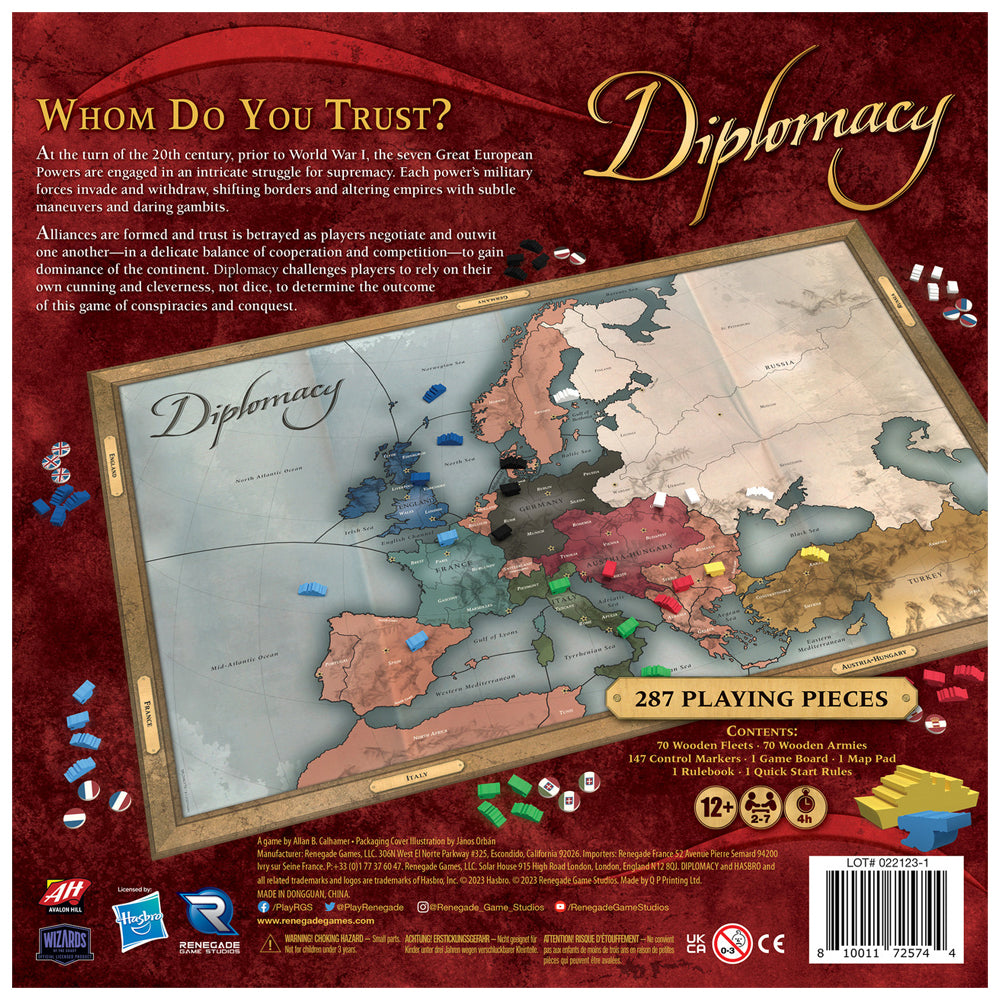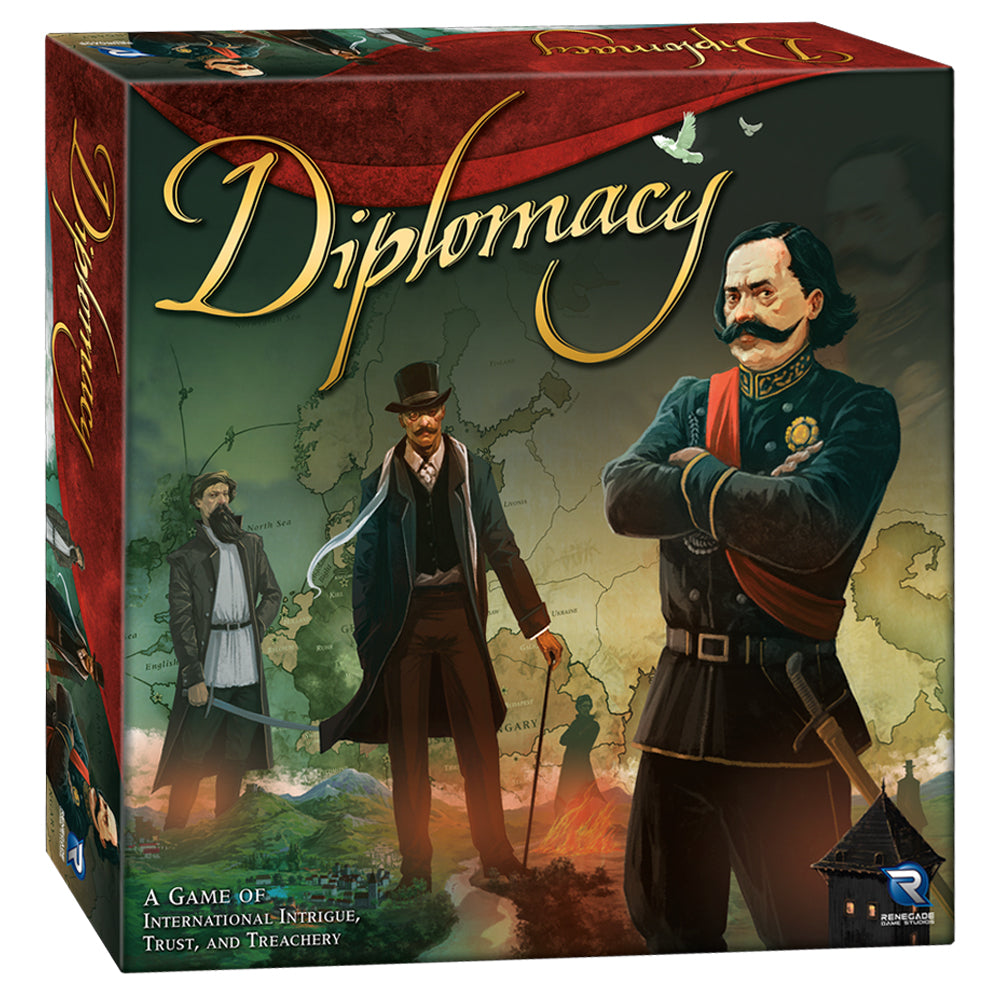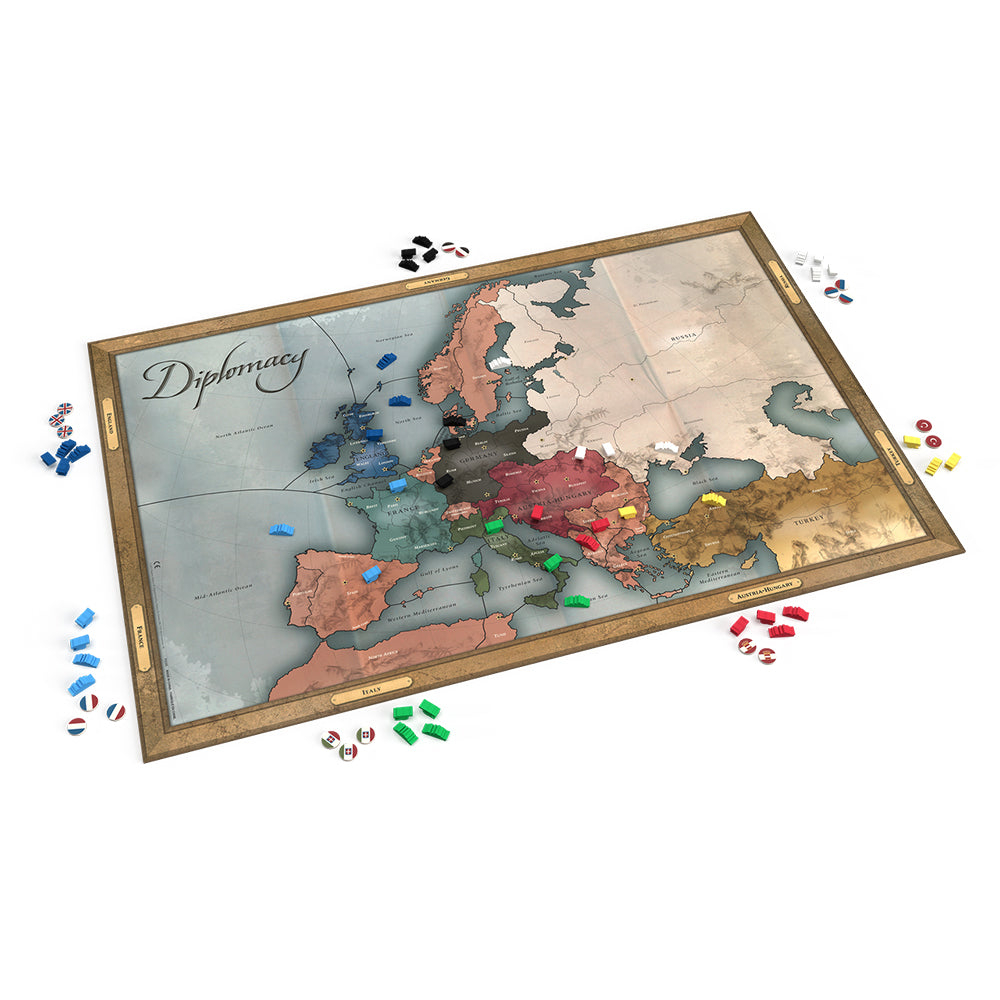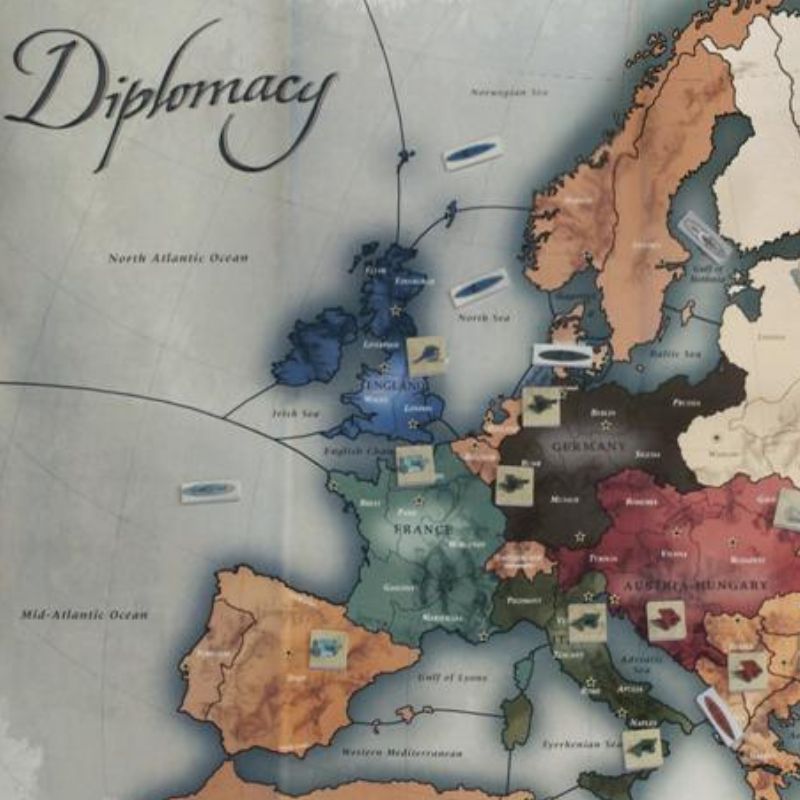Diplomacy: A Game of Strategy, Negotiation, and International Relations
Related Articles: Diplomacy: A Game of Strategy, Negotiation, and International Relations
Introduction
With great pleasure, we will explore the intriguing topic related to Diplomacy: A Game of Strategy, Negotiation, and International Relations. Let’s weave interesting information and offer fresh perspectives to the readers.
Table of Content
Diplomacy: A Game of Strategy, Negotiation, and International Relations

Diplomacy, a classic board game published in 1959, stands as a unique and enduring testament to the complexities of international relations. Unlike many other board games focused on resource management or combat, Diplomacy places the emphasis squarely on negotiation and strategic alliances. Players, representing various European powers in the early 20th century, must navigate a web of diplomacy, forming alliances, breaking them, and ultimately striving for dominance through a combination of skillful maneuvering and calculated betrayal.
The Essence of Diplomacy:
The game’s core mechanics revolve around a simple yet profound concept: players must utilize their limited resources – primarily military units – to occupy key territories on the game board, ultimately aiming to control a majority of these territories. However, the key to success lies not in brute force but in the art of negotiation. Players must carefully construct alliances, ensuring mutual benefit while simultaneously anticipating potential betrayals.
Gameplay Mechanics:
Diplomacy’s gameplay unfolds in a series of turns, each representing a year in the early 20th century. Players secretly submit their orders for each turn, detailing the movements of their units and potential diplomatic actions. The orders are then revealed simultaneously, and the game’s engine determines the outcome based on a set of rules.
The game’s simplicity is deceptive. The rules are relatively straightforward, focusing on the movement of units across the board and the resolution of conflicts. However, the true challenge lies in the human element – the complex interplay of alliances, betrayals, and strategic maneuvering.
Key Features:
- Strategic Planning: Diplomacy demands careful planning and anticipation. Players must consider not only their own actions but also the potential actions of their allies and opponents.
- Diplomacy and Negotiation: The game’s core mechanic lies in the negotiation between players. Forming alliances, securing agreements, and navigating potential betrayals are crucial to success.
- Variable Gameplay: Each game of Diplomacy is unique, influenced by the strategies and alliances formed by the players. There is no pre-determined path to victory, and the outcome is often unpredictable.
- Historical Context: The game is set in the pre-World War I era, providing a historical context for the alliances and conflicts that players experience.
- Cognitive Skills: Diplomacy fosters critical thinking, strategic planning, and social skills, as players must analyze information, anticipate outcomes, and negotiate effectively.
The Importance of Diplomacy:
Diplomacy is more than just a board game. It serves as a valuable tool for understanding the complexities of international relations. The game’s focus on negotiation, alliances, and strategic maneuvering mirrors the dynamics of real-world diplomacy.
- Understanding International Relations: Diplomacy provides a tangible platform for exploring the intricacies of international relations. Players learn about the importance of alliances, the dangers of betrayal, and the challenges of maintaining power in a complex geopolitical landscape.
- Developing Negotiation Skills: The game’s emphasis on negotiation sharpens players’ skills in communication, persuasion, and compromise. They learn to identify common ground, build trust, and navigate disagreements effectively.
- Strategic Thinking: Diplomacy fosters strategic thinking, requiring players to analyze information, anticipate outcomes, and plan for contingencies. This ability to think strategically is invaluable in various real-world scenarios.
- Social Interaction: The game encourages social interaction and collaboration, as players must work together to achieve their goals. This fosters teamwork, communication, and negotiation skills.
FAQs about Diplomacy:
1. What are the basic rules of Diplomacy?
The basic rules of Diplomacy are relatively simple. Players control units (armies, fleets, and a limited number of "special" units) that move across a map of Europe. Units can be moved to adjacent territories or, in some cases, across water. Players can also build units in certain territories.
The game is played in a series of turns, with each turn representing a year. Players secretly submit their orders for each turn, detailing the movement of their units and potential diplomatic actions. The orders are then revealed simultaneously, and the game’s engine determines the outcome based on a set of rules.
2. How do alliances work in Diplomacy?
Alliances in Diplomacy are formed through agreements between players. These agreements are not legally binding and can be broken at any time. However, players who break agreements risk damaging their reputation and alienating potential allies.
3. What are some common strategies in Diplomacy?
There are many different strategies that players can use in Diplomacy. Some common strategies include:
- Building a strong central power: Players can focus on building a strong central power in a specific region of the map. This can be achieved by controlling key territories and building a large number of units.
- Forming alliances: Players can form alliances with other players to achieve common goals. This can help to increase their power and influence.
- Backstabbing: Players can betray their allies to gain an advantage. This can be a risky strategy, as it can damage their reputation and make it difficult to form alliances in the future.
4. How do you win Diplomacy?
To win Diplomacy, a player must control a majority of the supply centers on the map. Supply centers are specific territories that provide resources to players. The number of supply centers needed to win varies depending on the number of players in the game.
5. Is Diplomacy a game of luck or skill?
Diplomacy is primarily a game of skill, but luck can play a role. The outcome of the game is heavily influenced by the decisions made by the players. However, luck can also play a role in the game, such as the random placement of units at the beginning of the game or the unexpected actions of other players.
Tips for Playing Diplomacy:
- Understand the Map: The game’s map is crucial to success. Familiarize yourself with the territories, supply centers, and strategic locations.
- Build Alliances: Forming alliances is essential to survival and victory. Seek out players with compatible goals and be willing to compromise.
- Anticipate Betrayals: Always be aware of the possibility of betrayal. Don’t trust anyone completely.
- Communicate Effectively: Clearly express your intentions and negotiate effectively. Build trust and maintain open communication.
- Think Strategically: Plan your moves carefully, considering the potential consequences of your actions. Look ahead and anticipate future developments.
- Be Flexible: Be willing to adapt your strategy based on the changing circumstances of the game. Don’t be afraid to change course if necessary.
Conclusion:
Diplomacy stands as a unique and compelling board game, offering a rich and rewarding experience for players of all skill levels. Its emphasis on negotiation, strategic maneuvering, and the complexities of international relations makes it a captivating and intellectually stimulating game. Beyond its entertainment value, Diplomacy provides a valuable tool for understanding the dynamics of real-world diplomacy, fostering critical thinking, negotiation skills, and strategic planning. Whether played for entertainment or as a means of exploring the intricacies of geopolitics, Diplomacy remains a timeless classic, offering a captivating and enduring experience for players of all backgrounds.








Closure
Thus, we hope this article has provided valuable insights into Diplomacy: A Game of Strategy, Negotiation, and International Relations. We thank you for taking the time to read this article. See you in our next article!